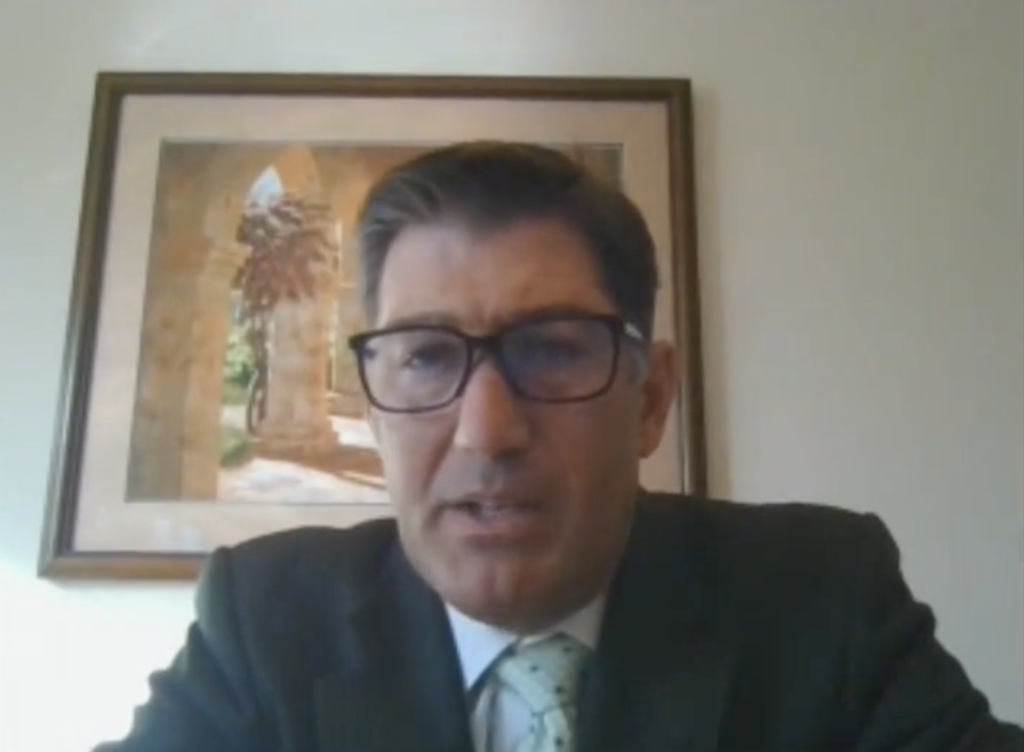The chair of Maryland’s medical cannabis agency is resigning after more than four years helping to steer the direction of the state’s fast-growing industry.
“I’ve decided it’s time to pass the torch,” said Brian Lopez, a real estate developer who was appointed to his chairman post by Republican Gov. Larry Hogan in 2017. “It’s hard because I have truly enjoyed learning this industry and watching it grow to where it is today, and I’m really proud of the accomplishments that we’ve accomplished together as a staff and commission.”
The news from Lopez, who by day serves as executive vice president of Baltimore County-based Osprey Property Co., capped the final meeting of the year for the Maryland Medical Cannabis Commision (MMCC). Lopez said he will officially step down Dec. 31 and the governor has not yet announced his replacement. He traded praise with his colleagues and noted “everybody’s put in a lot more hours than they signed up for.”
His tenure has encompassed almost the full storyline of Maryland’s cannabis industry so far: the first full awards of licenses for growers, processors and dispensaries in mid-2017; the launch of retail sales that December; legal battles with licensees as well as applicants who were denied entry into the market.
Lopez also served through a more recent licensing expansion phase that sought to bring racial and gender parity to the industry and an ongoing consolidation by multistate operators scooping up licenses. He has served through three executive directors, and was among just five commissioners retained by Hogan during a 2019 reshuffling. Hogan reappointed him as chairman last year.
“If I had my way I would continue doing this,” Lopez said in response to accolades from other commissioners, “but you really have to put in a lot of time to do it right, and I don’t want to not do it right.”
MMCC Executive Director Will Tilburg said he had tried to convince Lopez to stay put, and on Thursday celebrated him for treating his volunteer post like full-time work.
“I am just incredibly thankful to have worked with you,” Tilburg said.

During the hour-long meeting, the commission also unanimously approved seven license ownership transfers without discussion. Most noticeable among them was a transfer of a license for Maryland Medicinal Research & Caring LLC – formerly The Botanist dispensary in Woodlawn – to Callie’s Cannabis Shoppe LLC. The commission also approved a relocation request for the same license to an address in Security Square in Woodlawn.
While Callie’s Cannabis Shoppe name matches that of a family-owned dispensary chain operating three stores in the Denver area, the same-named LLC in Maryland is registered to Blaize Connelly-Duggan, co-founder of Remedy dispensary in Columbia. Remedy’s website currently hints at a new location “coming soon” off of I-695, which borders Woodlawn, but does not provide specific details. The Outlaw Report has reached out to both Callie’s and Remedy ownership but has not heard back as of Friday afternoon.
The commission also unanimously approved a license transfer for Canna Cuzzo’s LLC – former operator of a dispensary in Waldorf – to Story of Maryland LLC, registered to an address in Chicago that matches that of Green Ivy Capital, an investor in Illinois-based cannabis giant Verano Holdings.
Verano owns the Zen Leaf brand that runs weed dispensaries in 10 states, per its website. The company has steadily grown its footprint in Maryland and now owns the state’s maximum of four dispensaries under one company umbrella, with locations in Germantown, Jessup, Towson and Waldorf. (The license transfer was just approved Thursday, though the Waldorf dispensary has already been branded as Zen Leaf.)
The MMCC meeting also brought some early year-end data for cannabis patient population and sales growth in Maryland. Tilburg said the number of registered and certified patients is now at 148,254, up from roughly 124,000 at the end of 2020.
Dispensary sales, meanwhile, have surpassed $593 million for the year, and at this rate are “in line” to hit $605 million by Dec. 31, he said. That would represent a 30% increase over 2020 sales, which topped out at $420 million.





